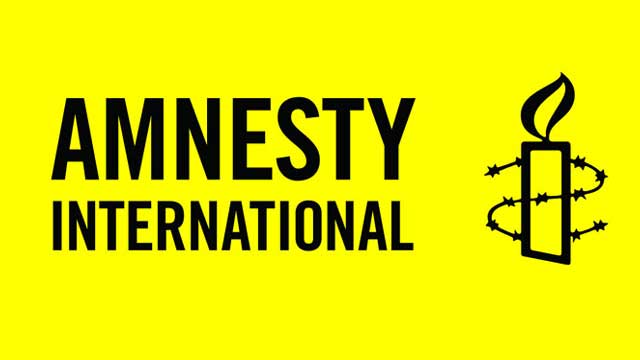Amnesty International on Monday strongly urged Bangladeshi authorities to investigate the attacks on the main opposition Bangladesh Nationalist Party.
This call came a day after the Dhaka Metropolitan Police used heavy force against BNP leaders and supporters during their sit-in programme at five entrances of Bangladesh’s capital, Dhaka.
The government said that they had arrested 700 people while the BNP said that 600 of them were injured in joint attack by police and ruling party people.
In the reaction, Amnesty said firearms and rubber bullets must never be used to disperse a gathering. The violence of a few individuals must not lead to a response which treats the entire protests as violent
Smriti Singh, interim regional director for South Asia at Amnesty International said, ‘there is an urgent need to de-escalate the situation in Bangladesh as it threatens further violations of rights of the people and is likely to perpetuate more violence and turmoil in the months leading to the upcoming general elections.’
‘The authorities should be aiming to defuse the situation, ensuring that only law-enforcement agencies that are properly trained in policing of assemblies in a human rights compliant manner are involved in regulating protests and any use of force by such agencies must go no further than is necessary and proportionate.
‘Amnesty International strongly urges Bangladeshi authorities to exercise restraint and only use the minimum level of force where strictly necessary. Firearms and rubber bullets must never be used to disperse an assembly. The violence of a few individuals must not lead to a response which treats the entire protests as violent.
‘The attacks on opposition leaders Rahim Newaz and Gayeshwar Chandra Roy, must be immediately and impartially investigated, those responsible brought to justice. The authorities must also ensure that protestors and opposition leaders are not arbitrarily arrested. Arrests should only be made if and when there is reasonable evidence indicating criminal conduct on part of the arrestee, and an arrest is a necessary and proportionate response.
‘The violence over the weekend is deeply worrying and may have implications for the human rights situation before, during and after the elections. Instead of cracking down on protesters, the authorities should fulfill their duty to facilitate the rights to freedom of expression and peaceful assembly.’
On July 28 and 29, Bangladesh’s main opposition party and other groups staged demonstrations calling for prime minister Sheikh Hasina’s resignation and demanding a caretaker government to be appointed before the elections in January 2024.
The protests ended with violent clashes between the police and protesters while several media videos alleged that the protesters and opposition party leaders were attacked and arrested.
Bangladesh home minister stated that around 700 people were detained over the violence during the protests.





